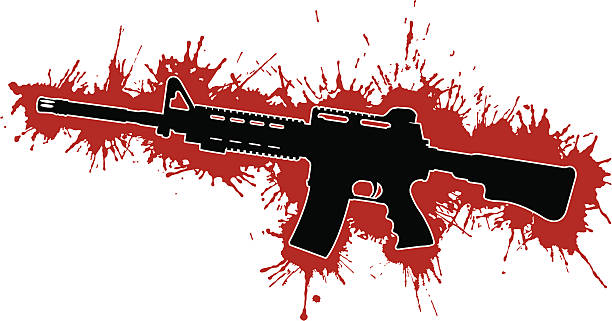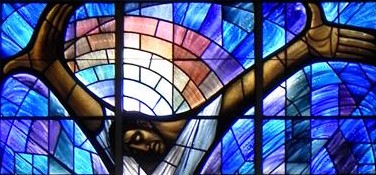
How can you write humanly about something inhuman: the massacre of nineteen elementary school children, plus two teachers, by a random gunman armed with weapons of war? Don’t we need another way of talking, another idiom, one that is actually inhuman, to describe it? Nothing else can do.
The events in Robb Elementary School in Uvalde, TX, belong to a background of school shootings stretching back over twenty years. Names like Columbine, Sandy Hook, Stoneman Douglas, are signature items in a roll call of social doom able to strike anywhere, anytime, without anyone able to do anything to stop it. The present resulting age of constant extreme social anxiety is the definition of the loss of functional humanity.
Some commentators reach back to themes of child sacrifice to explain things, and this, I think, is a language close to what might fit. But it is still not inhuman enough. After all, sacrifice, even child sacrifice, is something human beings have frequently done, as the Bible attests. What makes it intelligibly human is that it is intended to resolve a communal problem of stress, fear and anxiety, by channeling the group crisis onto a designated victim, and so allowing everyone else to find some level of overall meaning, order and well-being in their lives. But school shootings (and mass shootings generally) have no feasible outcome of communal success and well-being. Rather they serve only to increase anxiety, fear, anger, desperation, and further breakdown. If anything, they are actually anti-sacrificial: fraying the bonds of social cohesion and meaning, leading only to further eruptions of crisis and violence. School shootings are the mark of breakdown in the construct of human community itself.
The theoretical anthropologist, René Girard, had a term for this. It is a vital concept to help us understand the present situation. The term is “sacrificial crisis.” This means a situation where the effects of sacrificial order—the basis for Girard of human culture—are so eroded that violence can break out massively and anywhere in a constant attempt to re-found the world. He is talking about the cyclical nature of human violence at the root of culture, and situations where its built-in instability has overtaken its temporary stability. It is de facto a situation of terrible anxiety where human society begins desperately to look for a new scapegoat or victim, so that it can feel better about itself and go along with its business as before. But the single shooter does not seek this sacrificial solution, and the gun lobby behind him, that protects his ability to acquire the instrument of random killing, is likewise not interested in this outcome. They are not thinking humanly, in the way that all other cultures seem to have thought. Something else is going on.
What Girard did not specifically identify is what should be called the institutionalization of sacrificial crisis. Rather than resolve its tensions in a new sacred order, this condition finds its meaning and purpose in a permanent state of open violence, with each separate horror part of a rolling crisis which is its own overall justification. The option depends on a quite particular set of circumstances, including large landmass and material resources not threatened by local breakdown, a society of intense rivalry and competition, a background history of armed violence against minority groups, a founding legal document seeming to enshrine the right to carry guns unconditionally, and available weaponry of extreme power capable of killing many people in a very short space of time.
Sound familiar?
These circumstances create their own spiritual condition which must be understood in and for itself, and that indeed has to be the point. Human beings have never quite known anything like this before, and so the situation has to be considered effectively inhuman; or so novel for humans that they lack any intelligible language to talk about it. The permanent state of open violence becomes its own way of being in the world, brought about by the particular circumstances described, but taking on an independent godlike status. In the past the godlike associations of violence would have been rolled quickly back into a given religious/sacrificial system, but today they carry a free-floating identity as self-vindicating open violence. They are a god without a face.
Unless the anonymous face is perhaps the gun itself.
The gun kills, the gun continues to kill, the gun is immune from blame, the gun must therefore be a god. For many this is a noxious, inhuman god, one that is not tolerable for any society. But for many others this is a god that indeed may not be questioned. Those who feel this latter way are in the unique situation of espousing a religious emotion in relation to something that functions in an inverse way to religion.
It carries out sacrificial violence, but it gathers no community; it kills its victims but creates no peace; it exercises its priesthood, but considers nothing sacred; it enacts its logic, but produces no meaning. This is inhuman, but it is real.
Because this is a spiritual condition it is not sufficient to double down on attempts to blame, including the gun itself. Mobilizing the community to cast out the evil thing with anger and righteousness will only repeat the dynamics of violence and get more people armed. Blaming the gun ends with people carrying more guns. What is needed instead is an equal and alternative novelty of spirituality, one that responds to the inhumanity of the gun with, in fact, a new humanity. There has to be a revolutionary discovery of nonviolence and compassion, the willingness not to respond to violence with violence, the opening of new transcendent space of peace and forgiveness that deliberately and radically lets go of the gun.
How can this happen? I’m sure in fact that it’s already happening in many individual stories and lives, but what is necessary in addition is this become a theme, a motif, talked about more and more at the level of commentary, of politics, school, and church and college teaching. Politicians are opportunists by nature, and they respond instinctively to whatever’s in the wind. Even if a fresh spirituality of nonviolence is a minority persuasion, a strong and consistent theology of nonviolence arising in Christian communities will inevitably give energy and voice to common-sense policies of gun-harm reduction. In the end spirituality is what makes society, and the lack of consistent spirituality of nonviolence allows the gridlock of gun politics to persist and persist. We seem to be locked into the anger of the gun itself, with both sides of the debate, figuratively at least, pointing guns at each other. A breakthrough of new humanity in the face of the inhuman is instead the only possible fresh meaning in the impasse.
The very deficit of humanity becomes the possibility of transformed humanity. Are we not in the time itself when the nonviolent spirituality of Jesus arises as the most practical way forward?
